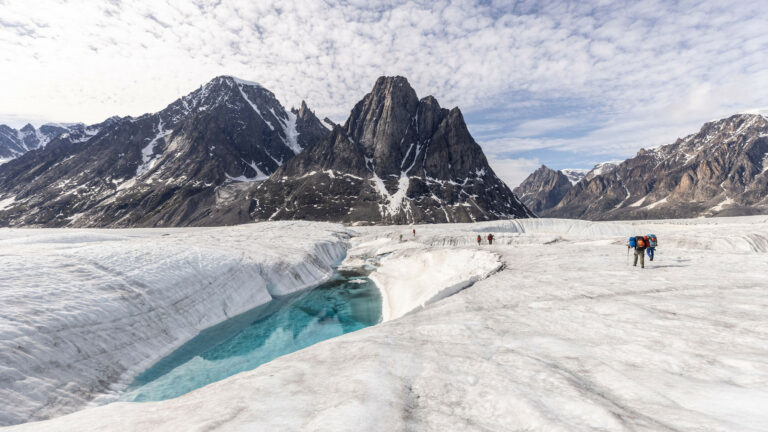National Geographic: ARCTIC ASCENT WITH ALEX HONNOLD
New documentary series on the National Geographic TV channel
Vertical nail biting
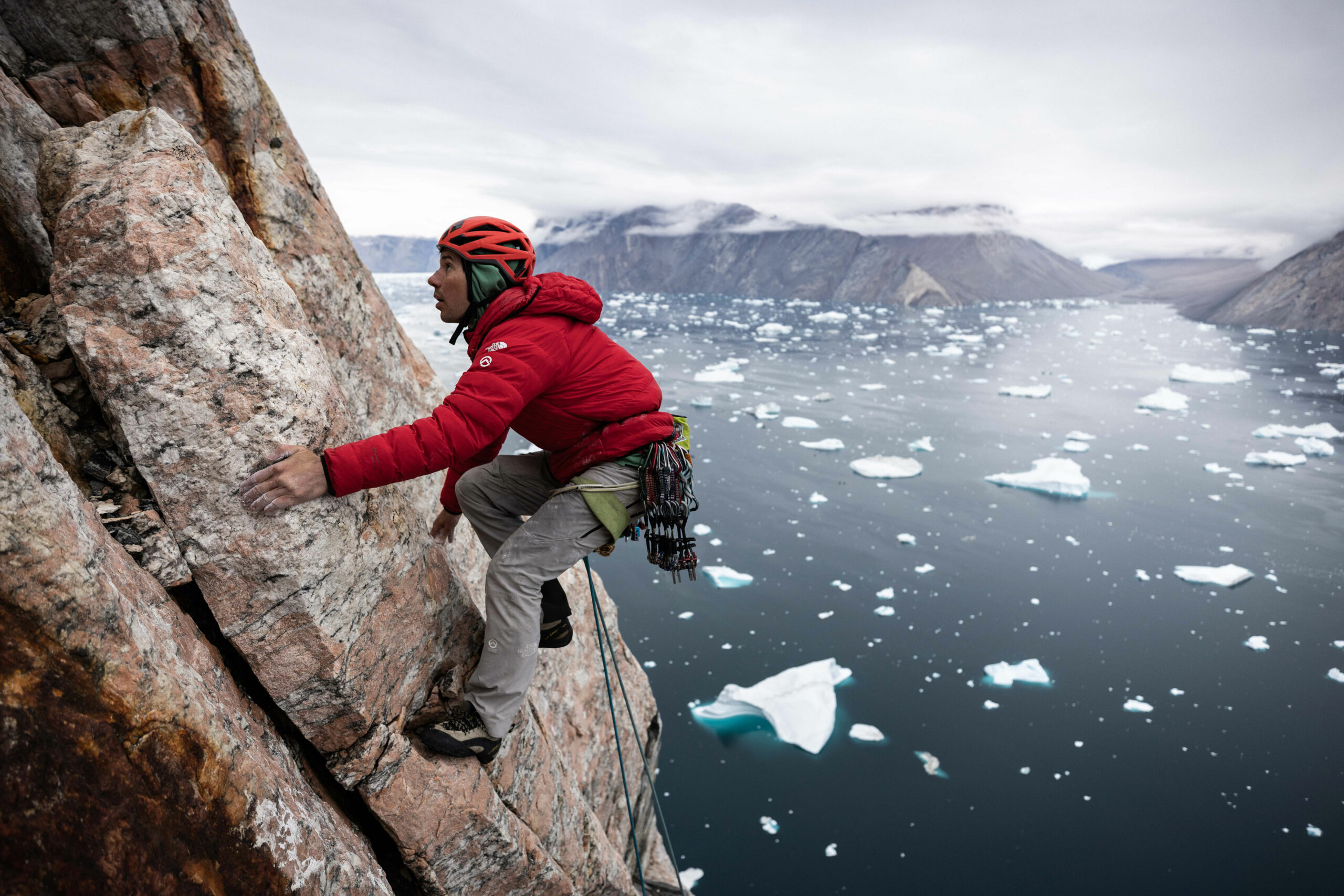
✮✮✮✮✮✮
' …. the documentary is told to an international audience who know very little about Greenland and its importance for the world’s climate …..'
– Master of Science, Bo Christiansen, KULTURINFORMATION
Deep inside Scoresby Sund, the world's longest fjord, lies the mountain Ingmikortilaq (that's how it's spelled on old maps). The name can almost be translated as 'the free-standing'. Greenlandic place names are always descriptive and often quite understated. Here, 500 kilometers north of the Arctic Circle, and a few hundred kilometers from the small East Greenlandic town of ittoqqortoormiit, one of Greenland's highest free-standing sea cliffs rises vertically. 1143 meters high, more than 200 meters higher than the famous mountainside El Capitan in Yosemite National Park in California.
It has now been climbed for the first time. Two of the world's best climbers, Alex Honnold and Hazel Findlay, fight their way to the top in a nerve-wracking new documentary series. They are presented as some of the world's best climbers, and after biting my nails through the last section in particular, I have no doubts either. The series premieres on the National Geographic TV channel on February 7 at 8 p.m. The theme of the entire evening is Honnold's climbs, including his Oscar-winning documentary 'Free Solo', in which he is the first ever to climb El Capitan – alone and without aids.
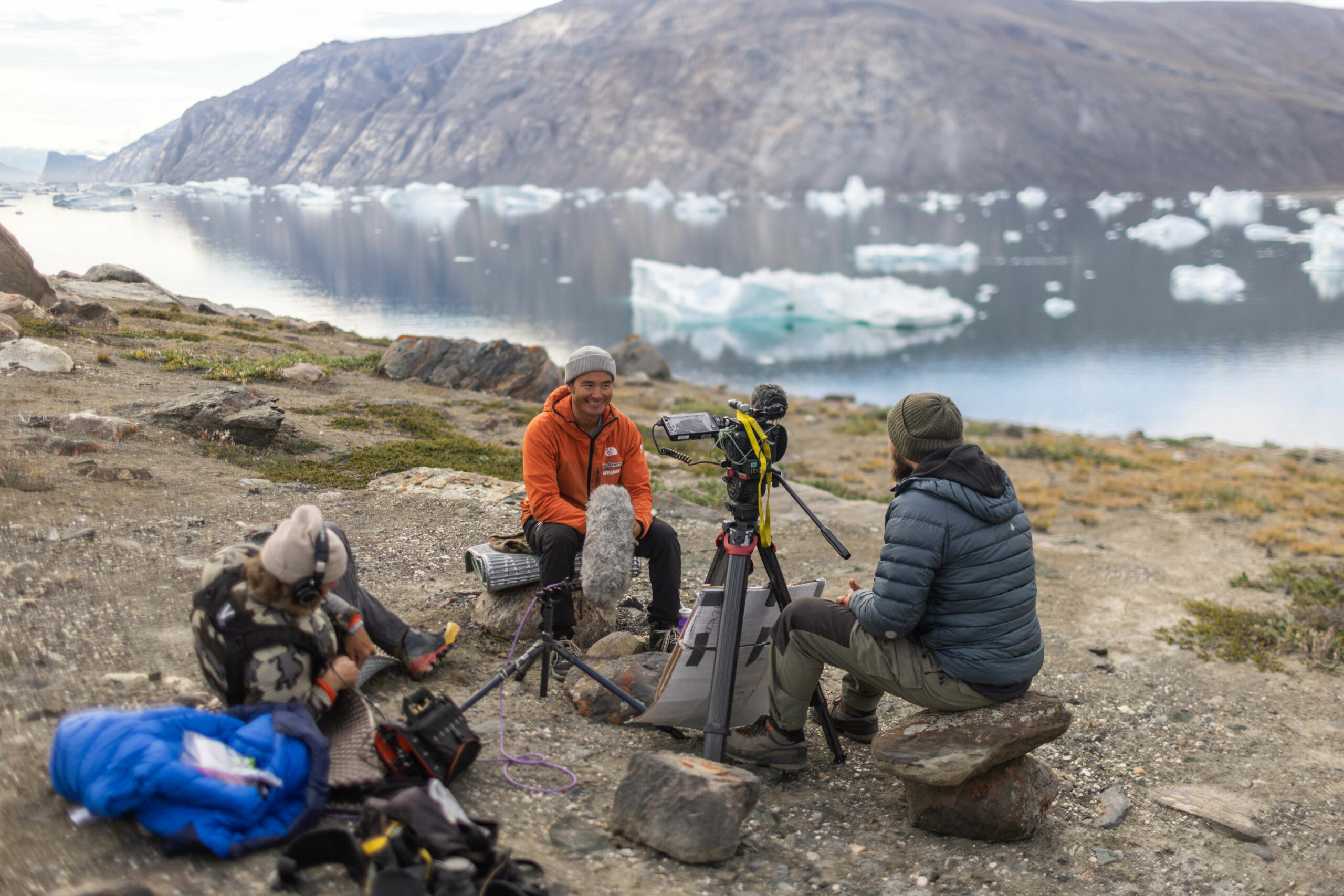
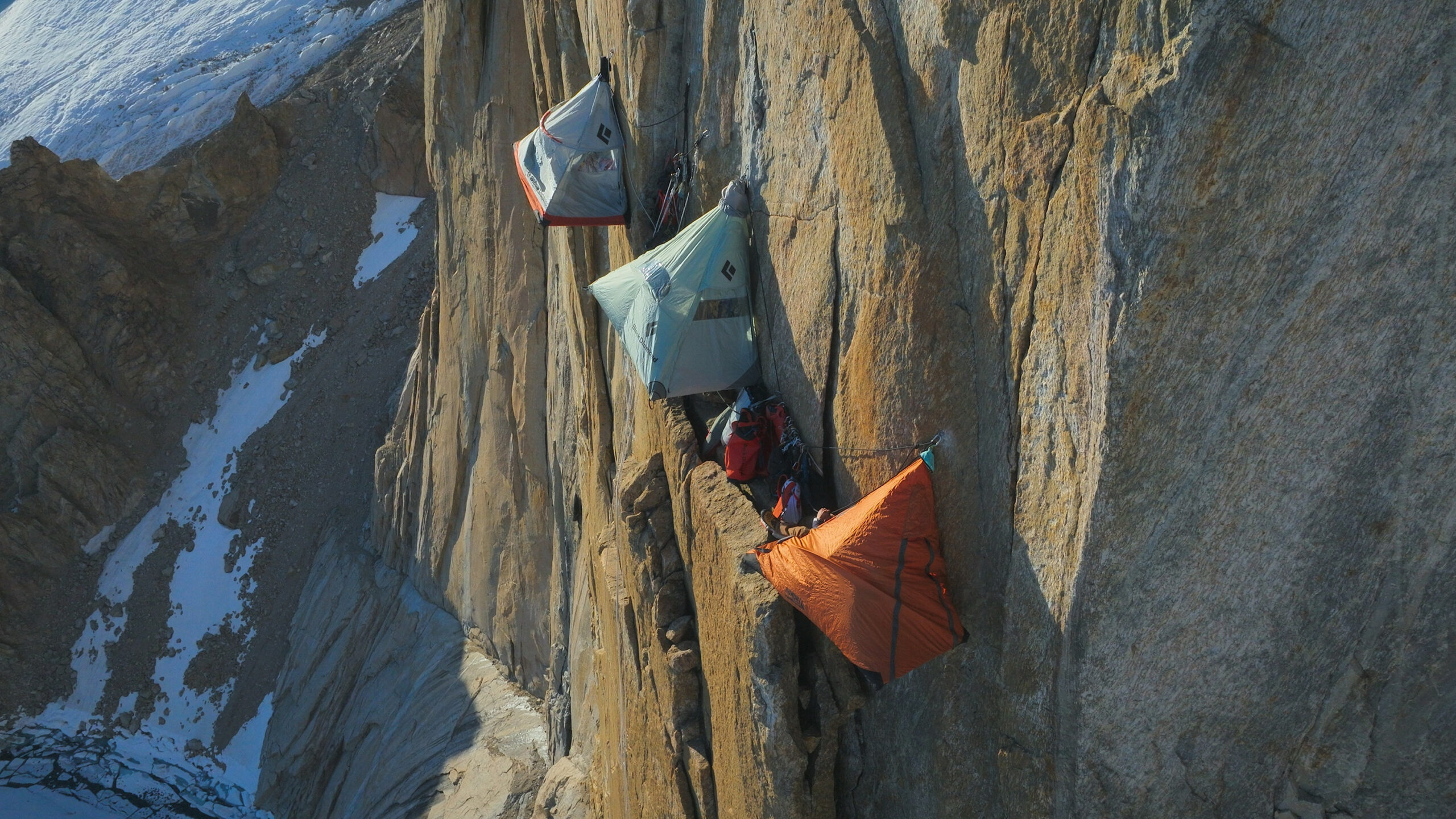
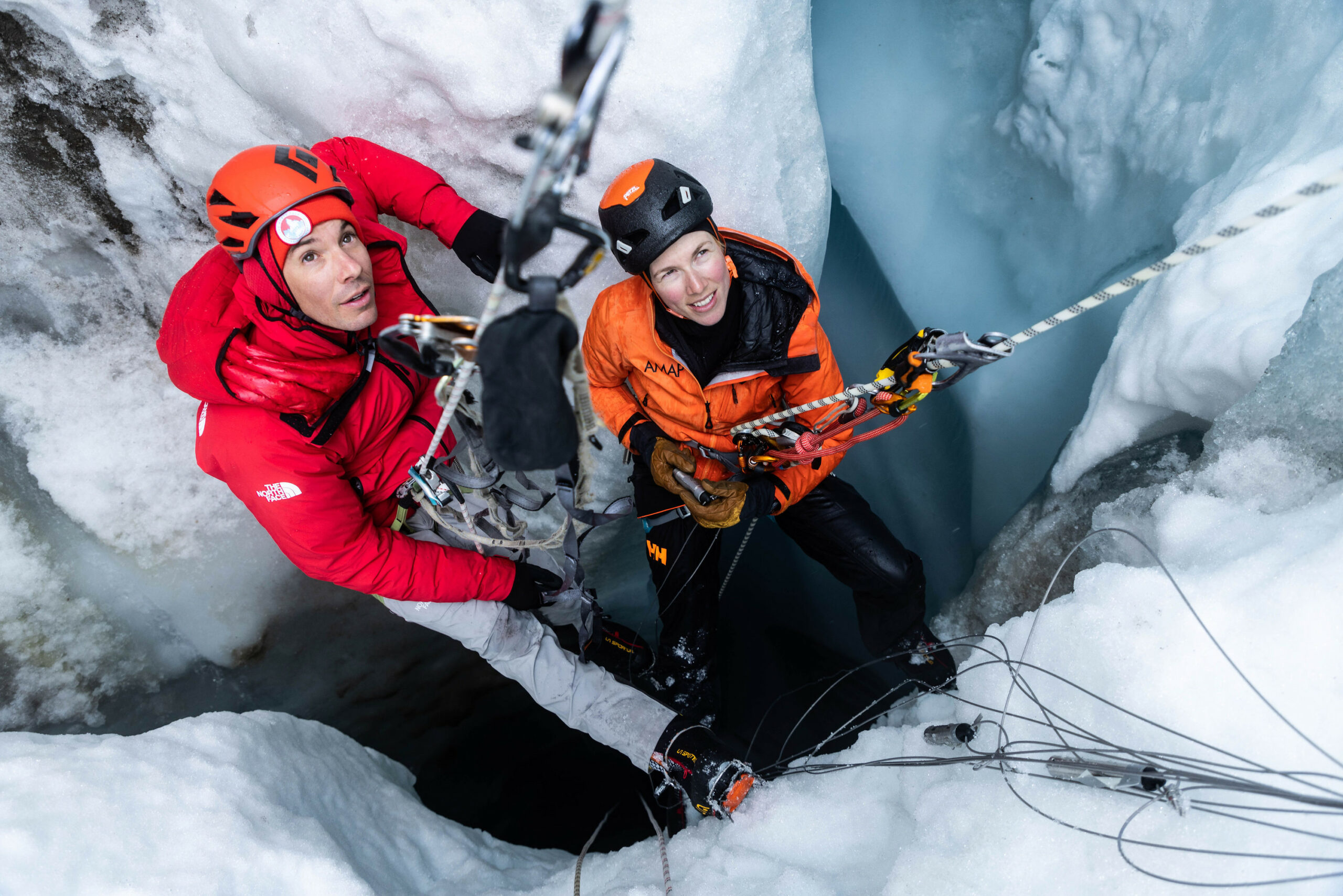
The three episodes of this new series, Arctic Ascent with Alex Honnold, are all about the mountain Ingmikortilaq. As the name suggests, it is remote, isolated, inaccessible. In the first episode, the crew of six arrive in the deserted area. They are landed by helicopter 160 kilometers from their target. Here, the group's participants are presented, we hear about their background, motivation and commitment.
Alex Honnond and the team
The main character is the expedition's initiator and informal leader, Alex Honnond, who has been climbing for over thirty years. For years he lived in his car, now he has a family and has just become a father. The wife talks about her husband's commitment, and he, a long-time climate activist, talks about his concern for the future of his daughter and the planet. These two themes intertwine in the series, the fascination of extreme nature and the concern for climate change and the future of the planet.
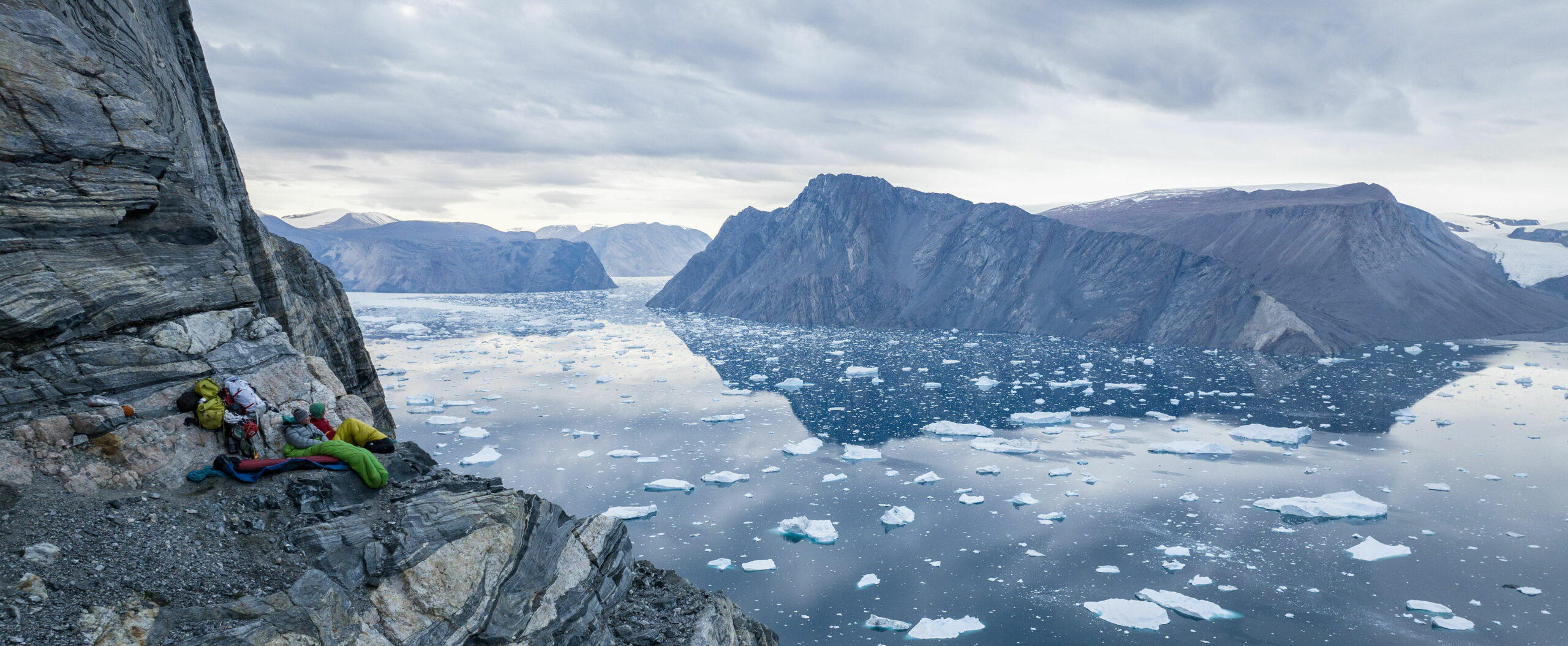
We also meet three other very experienced climbers, Hazel Findlay, Mikey Schaefer and finally Aldo Kane, the group's safety expert. Heïdi Sevestre, a glaciologist who researches climate change, and a Greenlandic guide, Adam Kjeldsen, also participate.
The Wall and the future
Through the series' three episodes, we follow the team as they explore the area and slowly approach their goal. Along the way, they practice by climbing another vertical mountain wall, the Pool Wall, approximately 600 meters high. They cross a glacier and make the descent to the fjord before finally being sailed further into the fjord to Ingmikortilaq, the mountain to be conquered.
This is not just the story of a wild sporting feat. We also get an introduction to the study of the ice, its movements and its importance for the climate changes we are in the midst of. The documentary here is told to an international audience who know very little about Greenland and its importance for the world's climate. As glaciologist Heïdi Sevestre puts it: 'The future of New York, London and Shanghai depends on glaciers like these. If we lose the Arctic, we will live in a very changed world.'
It's all told in a pleasantly subdued way. The participants, who are truly world champions in their field, seem modest and thoughtful, they express respect and admiration for the magnificent Greenlandic nature. They reflect on life and death, both in connection with their own extreme and life-threatening sport, but also on behalf of humanity with sincere concern about climate change. Honnond himself ends by saying: 'We have an amazing opportunity to make the world better, we just haven't chosen to do it yet.'
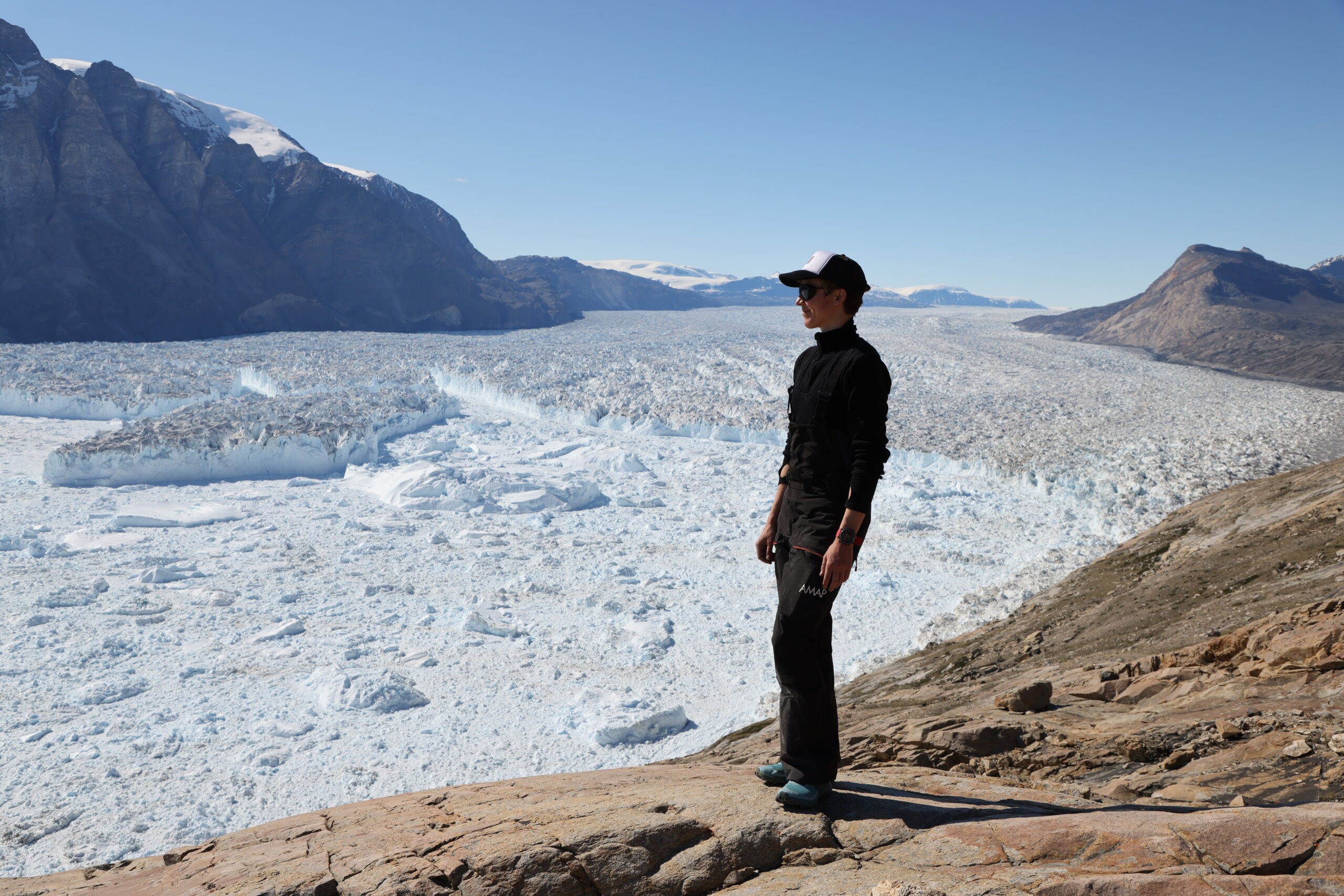
More: We have previously written in this blog about the Greenlandic ice cap, both from a scientific and a cultural point of view – Check out the article here about the Isfjord Center.
FACTS: National Geographic: ARCTIC ASCENT WITH ALEX HONNOLD
National Geographic's broadcast program on February 7:
At 19.00: Running wild with Bear Grylls: with Alex Honnold in the Swiss Alps
At 20.00: Arctic Ascent with Alex Honnold
At 23.00 Free Solo
National Geographic: ARCTIC ASCENT WITH ALEX HONNOLD – Watch the trailer here
National Geographic: ARCTIC ASCENT WITH ALEX HONNOLD is written by Master of Science, Bo Christiansen, KULTURINFORMATION
Redaktion: Jesper Hillestrøm

